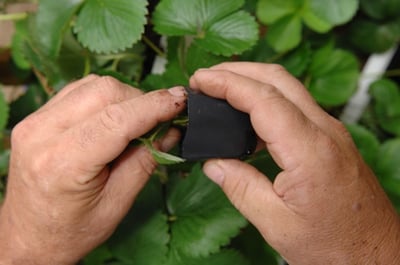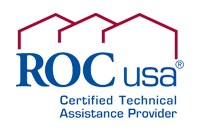
Plan before you plant that community garden
By ROC-NH staff
With a little research and planning, community gardens in resident-owned communities can produce a bounty of vegetables.
It isn't too late to think about a community garden for your ROC.
A community garden is defined by the American Community Gardening Association as:
Any piece of land gardened by a group of people … It can be urban, suburban, or rural. It can grow flowers, vegetables or community. It can be on a community plot, or can be many individuals’ plots. It can be at a school, hospital or in a neighborhood.
ROCs are ideal places for community gardens, in one common space or in multiple spaces, where community members can work together to get the soil started, buy seeds or plants in bulk, share duties of weeding and managing pests, and eventually harvesting and preserving.  Location, location, location
Location, location, location
The proper location and soil is the starting point for a successful garden. The UNH Cooperative Extension will test your soil and can give you recommendations for the best crops in that soil.
Placing your garden in a central location, easily accessed by others, increases the likelihood that it will be well-cared for. Proximity to a water faucet and tool shed make watering, weeding, mulching and watching for pests more convenient. A remotely located garden is also more likely to attract deer and woodchucks; they'll enjoy your garden before you have a chance to!
Lastly, a location with eight full hours of sun is best. If that is not available, crops such as leafy and root vegetables will do better there than squash, cucumbers and tomatoes.
Plan your garden
Grow crops that you like to eat, that do well in our short growing season here, and think about disease resistance.
Water is key
Water only when necessary and preferably early in the day. Check to see if the soil is dry a couple of inches below the surface; if it is, soak the soil. Mulching around the plants will help conserve water, reduce evaporation and keep the soil from drying as quickly.
Watch for pests
Improper use of pesticides can harm humans, pets and the environment, so if pests appear, make sure to use the right treatment. The UNH Cooperative Extension will assist you in identifying problems and pests – including problems that aren't insect-related, including lack of water, pecking birds or nutritional deficiencies.
At harvest time, you may have more fresh food than you can eat. Follow food-safety practices at every step. The National Center for Home Food Preservation at the University of Georgia offers the latest research and information about freezing, canning, pickling and making jams and jellies.
ROC-NH™ is a program of the New Hampshire Community Loan Fund, Inc. and a ROC USA® Certified Technical Assistance Provider.
ROC-NH is a registered service mark of ROC USA, LLC.















